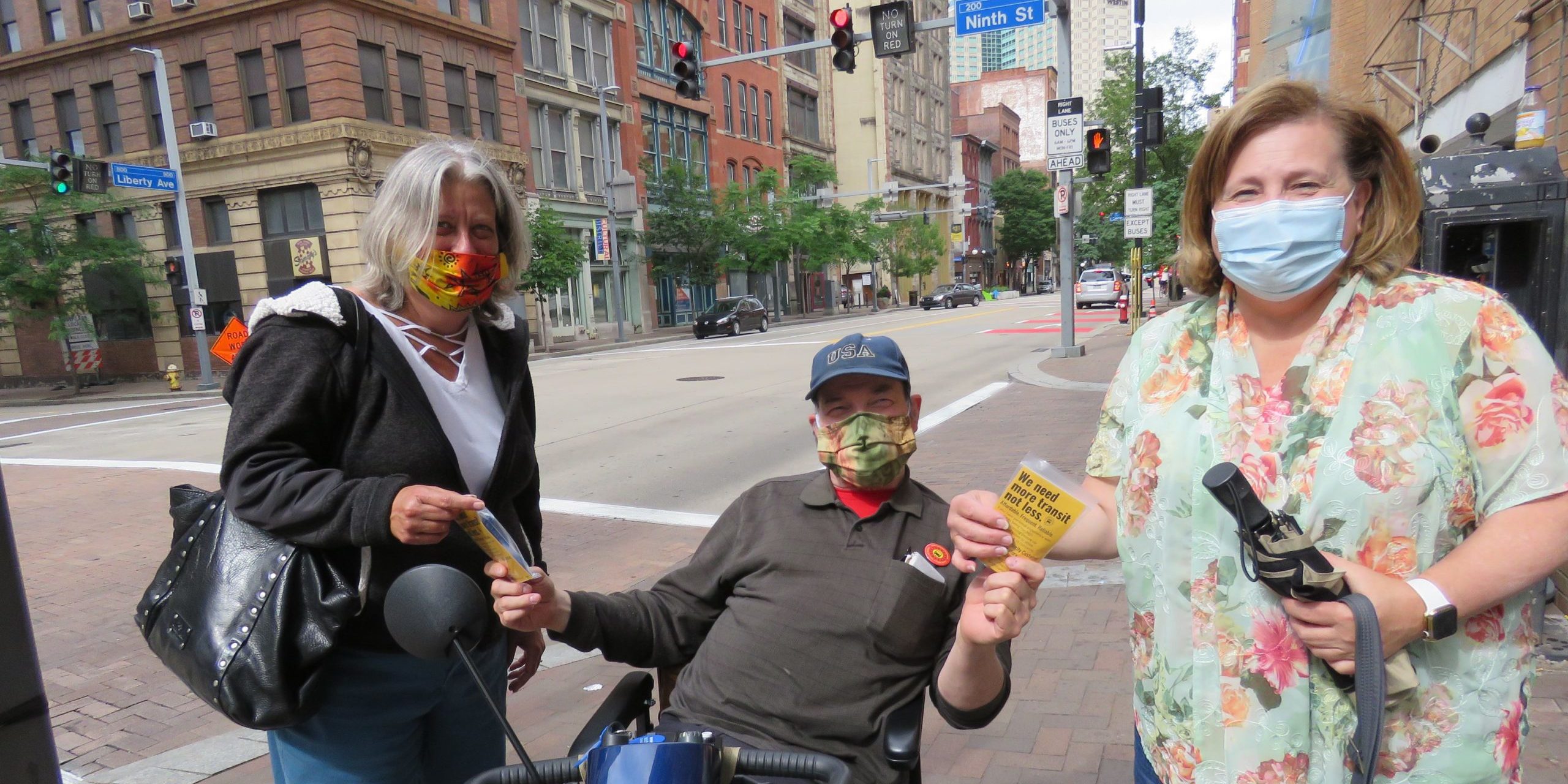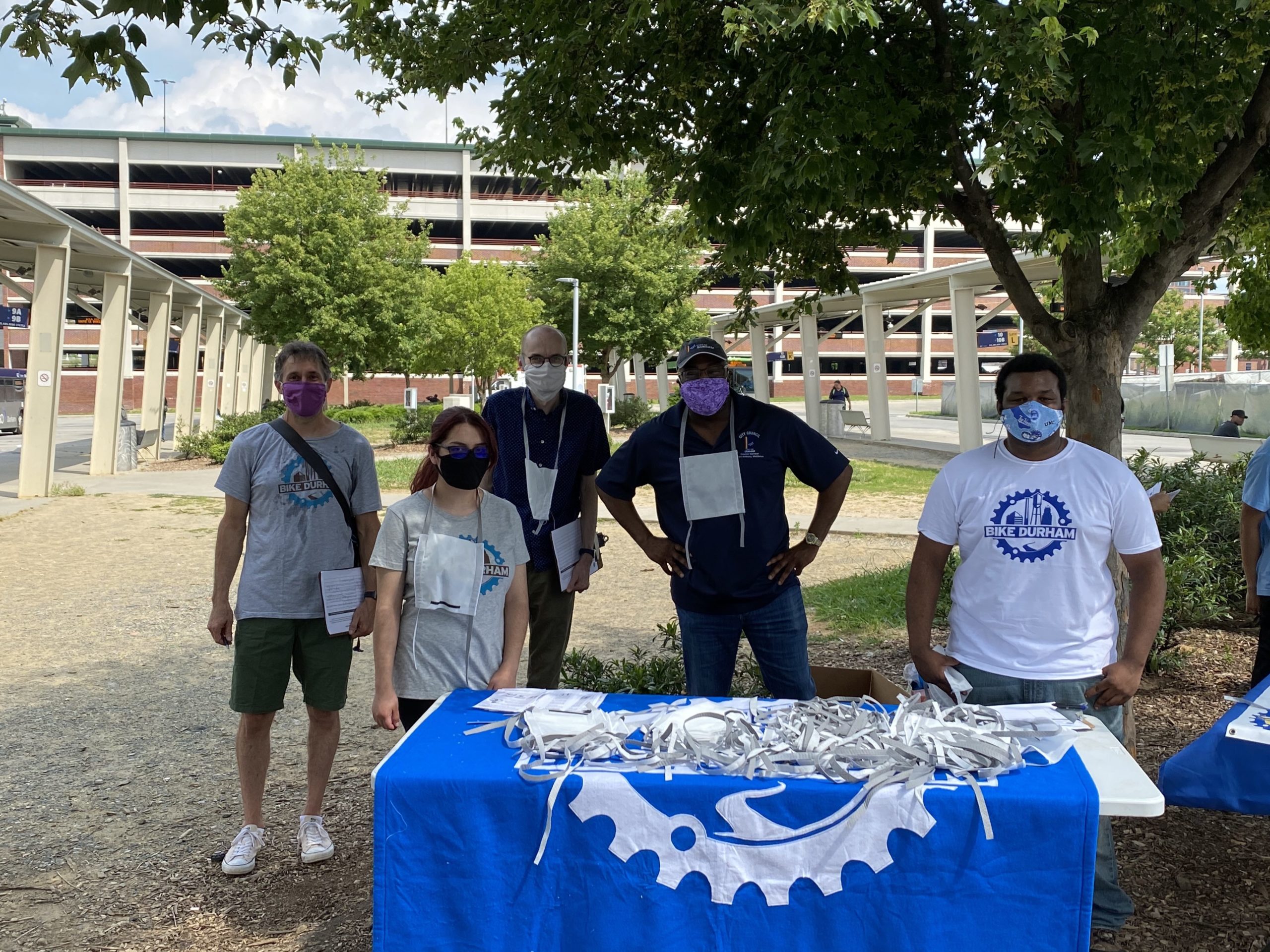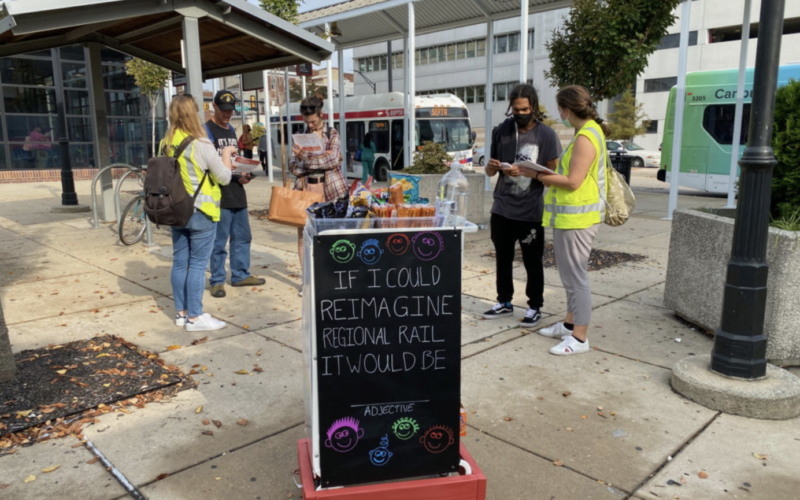
As evidence accumulates that wide-spread mask-wearing can reduce the spread of COVID-19, a growing number of transit systems are requiring riders to wear masks on board.
Several agencies, including New York’s MTA, Portland’s TriMet, and Richmond’s GRTC, are also providing masks directly to riders. This improves compliance and public health while deemphasizing policing and coercion. But currently, more agencies require masks than provide them.
Mask provision should be the responsibility of transit agencies, as well as local, state, and federal officials with the means to acquire masks in large quantities. To highlight the need for government action, advocates in Pittsburgh, San Francisco, and Durham, N.C. have stepped in to fill the gap by distributing masks to riders. These groups are also using mask giveaways as an occasion to organize riders to demand better transit service.
In April, Pittsburgh’s Port Authority began requiring that all riders wear masks while riding transit, in line with statewide public health guidelines. While the agency has since resumed normal service, including fare collection and front-door boarding, it has not provided masks for riders to comply with the order.
“Transit agencies need to ensure that all riders have personal protective equipment to safely ride the bus, so that riders don’t have to fear enforcement of mask-wearing, nor do they have to worry about contracting and spreading COVID,” said Pittsburghers for Public Transit (PPT) Executive Director Laura Wiens.
While Wiens believes it’s the Port Authority’s responsibility to provide masks, she says advocates can engage riders at mask giveaways. “Transit advocates can also take leadership and distribute reusable cloth masks at bus stops as an opportunity to survey and mobilize riders on issues like overcrowding on buses and affordable fares.”
To raise money for masks, PPT launched a crowdfunding campaign, the Transit Rider Mask Fund. In a single day, PPT members contributed $4,000, which purchased more than a thousand masks to distribute to riders.
PPT enlisted ten volunteers to distribute the masks at bus stops and speak with riders about problems ranging from lack of bus service, the unaffordability of fares, and inadequate state funding. PPT strategically prioritized this canvassing within the district of a state legislator who has been calling to defund public transit in Pennsylvania.
PPT parlayed the in-person encounters to more sustained engagement. “From our mask distribution, we were able to turn out more than a hundred riders to a transit town hall to discuss issues of service and transit funding during this pandemic,” says Wiens.

Members of Bike Durham distributing masks at the Durham Transit Station
In Durham, North Carolina, local advocacy group Bike Durham partnered with Covering the Triangle – a nonprofit which offers face coverings to at-risk populations – to distribute free masks at the main downtown bus station. So far the group has distributed around 5,000 washable face coverings to bus riders, and through a county-wide effort, expects to distribute an additional 1,000 per week this summer.
“In Durham, bus ridership has only declined 40% during the pandemic because many rely on GoDurham to get to work, stores, and healthcare,” said Bike Durham Executive Director John Tallmadge. “The science tells us that in order to keep the riding public and bus operators safe from COVID-19, it’s critical that everyone wear face coverings on-board the bus.”
In San Francisco, the San Francisco Municipal Transportation Agency (SFMTA) began providing its transit operators and riders with masks early in the pandemic. But to complement SFMTA’s efforts, local advocacy group San Francisco Transit Riders (SFTR) raised money to purchase and provide masks to operators and riders.
SFTR initially appealed to its members for homemade masks for distribution, and received hundreds of cloth mask donations from supporters around the country. SFTR was also able to crowdfund $5,000, which staff used to purchase 3,000 paper masks for distribution.
SFTR organizers partnered with TWU Local 250-A to distribute masks to transit operators. The group is also working to distribute masks in bulk to local community-based organizations, building relationships with key constituencies while helping to keep riders and operators safe.
“Public transit should be as safe as possible for essential workers who depend on it, and those who operate it,” said SFTR Executive Director Cat Carter in a statement. “This is our way to support our frontline workers during this crisis.”
 New TransitCenter Report: To Solve Workforce Challenges Once and For All, Transit Agencies Must Put People First
New TransitCenter Report: To Solve Workforce Challenges Once and For All, Transit Agencies Must Put People First
TransitCenter’s new report, “People First” examines the current challenges facing public sector human resources that limit hiring and retention, and outlines potential solutions to rethink this critical agency function.
Read More A Transit Revolution in Philadelphia?
A Transit Revolution in Philadelphia?
The Southeastern Pennsylvania Transportation Authority (SEPTA) has been working throughout the pandemic on several system-wide planning initiatives that have the potential to transform transit service in and around the city of Philadelphia.
Read More